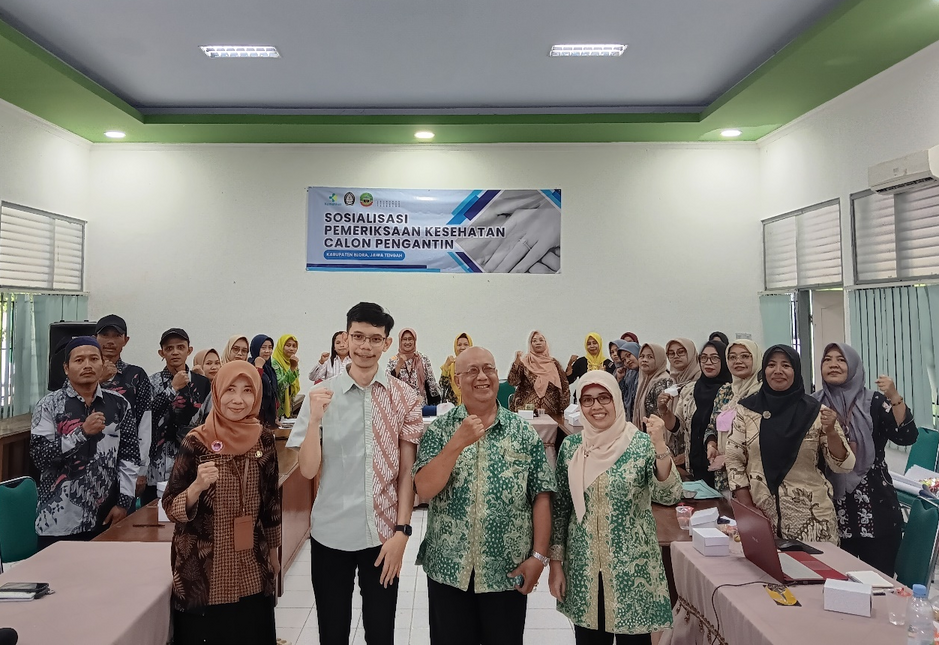Blora (12/9) – In an effort to implement health screenings for prospective brides and grooms at the district and city level, the Faculty of Public Health, Universitas Diponegoro (FKM UNDIP), in collaboration with the Ministry of Health of the Republic of Indonesia (Kemenkes RI), held a socialization event. The event was attended by members of the Family Welfare Movement (Tim Penggerak PKK), including village heads (Ibu Lurah) and cadres from Pokja IV, PT. Unggul Jaya Blora, as well as health workers from the local health centers (Puskesmas) of Blora and Ngawen, and was held at the Blora District Health Office (DKK).
This hybrid socialization event was officially opened by the Head of the Blora District Health Office, Edi Widayat, S.Pd, M.Kes, M.H., and the Chairperson of the FKM UNDIP team, Dr. dr. Sri Winarni, M.Kes. The socialization covered a number of important topics, including the significance of health screenings for prospective brides and grooms, the risks associated with high-risk pregnancies, and the challenges and opportunities in raising awareness about health screenings for couples. The session was presented by Dr. Diah Puspasari, M.H. The next presentation was delivered by Dr. Ratih Rahayuningsih, a representative from the Health Office of Central Java Province, who discussed policies related to the importance of health for prospective brides and grooms. This was followed by a talk from Dr. Gagah Baskara Adi Nugraha, Sp.OG, from the Indonesian Obstetrics and Gynecology Association (POGI), who discussed the importance and benefits of health screenings, as well as the potential risks of high-risk pregnancies.
Participant enthusiasm was evident during the Q&A session, with both in-person attendees at the Blora District Health Office and online participants joining via Zoom actively engaging. The following session involved group discussions, where participants were divided into small groups to conduct role-playing exercises based on case studies provided. Each group then presented their proposed solutions to the cases.
The main goal of this socialization activity was to enhance understanding of the importance of health screenings for prospective brides and grooms among the members of the Family Welfare Movement (including village heads and cadres of Pokja IV), company managers, and neighborhood heads (RW) in Blora District. Additionally, the event sought to gain support and commitment to promote health screenings for prospective brides and grooms throughout Blora. The event concluded with a special visit by the wife of the Blora Regent, who observed the event in person and expressed her appreciation for the initiative.
